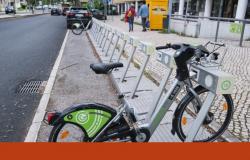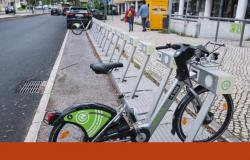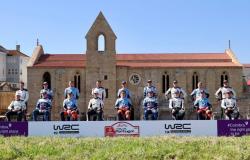Raul Violante was on the first administrative committee that managed the Santarém Chamber after the revolution. He was later elected councilor and is now president of the Parish Council of Pernes
Municipalities and parish councils during the dictatorship were structures without great autonomy, financing and capacity for implementation. It is no wonder that one of the first measures taken by the new mayors in Santarém was to install public lighting in an area of the city. Inadequacies in the road network, water supply, basic sanitation or garbage collection were prevalent.
The installation of lighting on the path that connected the center of Santarém to the Colégio Andaluz, where the headquarters of the Santarém Polytechnic is today, was one of the first works undertaken by the administrative committee that began managing the Santarém City Council after the revolution of 25 April 1974. The path was unpaved and there was no talk of tarring this route that connected the now populated area of Sacapeito to the city center.
Half a century later everything changed. A new city grew in that area and local power transformed from an ant into an elephant. In 1974, Santarém City Council did not have any technical staff, namely engineers, architects or jurists. The general manager was a kind of all-powerful figure and the man responsible for works and licenses, the independent professionals who had agreements with the chamber to give their opinions. Lawyer Leonardo Ribeiro de Almeida, who would become president of the Assembly of the Republic, went to the chamber once a week as a consultant.
This scenario was portrayed by a man who lived in both worlds. Raul Violante, then a young graduate in Finance who was a teacher at the Liceu de Santarém while waiting for him to be called into the army, was one of the members of the first administrative committee of the Santarém Chamber in the post-revolution period. He was 24 years old and led by the charismatic pharmacist Francisco Pereira Viegas, father of actor Mário Viegas. Later, in the second half of the 1990s, Raul Violante was a councilor in the Santarém Chamber and is now president of the Pernes Parish Council, elected by the PS.
The creation of the administrative commission that managed the Scalabitan municipality after the revolution was helped by the Democratic Electoral Commission (CDE), a political force already with experience from the times of the dictatorship and which brought together many names from the democratic opposition. Lawyer João Luiz Madeira Lopes was one of those responsible for ensuring the transition of power in the Santarém Chamber and in the parish councils in conjunction with the Armed Forces Movement (MFA), represented in Santarém by the then captain Joaquim Correia Bernardo.
Impassable roads, water supply, basic sanitation and garbage collection were the most pressing problems facing the debutant mayors when they took office on May 27, 1974, in front of a crowd that filled Largo do Município. The insufficiencies in terms of basic infrastructure were enormous. Almost everything remained to be done, especially in rural parishes. Therefore, Raul Violante does not hesitate in classifying local power, along with the right to vote for everyone, as two great victories of the 25th of April.
The situation in the parishes was even worse
At the conference “The 25th of April and Local Power”, which took place on the afternoon of April 19th in the Salão Nobre of the Paços do Concelho de Santarém, organized by the Joaquim Veríssimo Serrão Research Center, the mayor of Pernes said that if reality in Municipalities before the 25th of April were extremely poor, in parish councils it was even worse. Most of the joints did not have a physical headquarters. The writing and other documents were usually kept in the house of the president of the board. Many of these files have disappeared over time.
“It is not surprising that many parish councils do not have historical sources. A lot of documentation was lost during the transition of presidents”, says Raul Violante, adding that the oldest minute book of the Pernes Council is from 1938. The budgets of the parish councils were also negligible. In 1974, the subsidy given by Santarém City Council to larger parish councils was 10 thousand escudos per year (approximately 50 euros).





